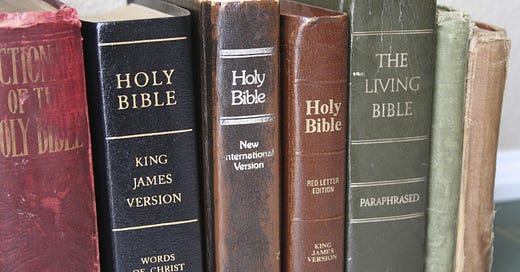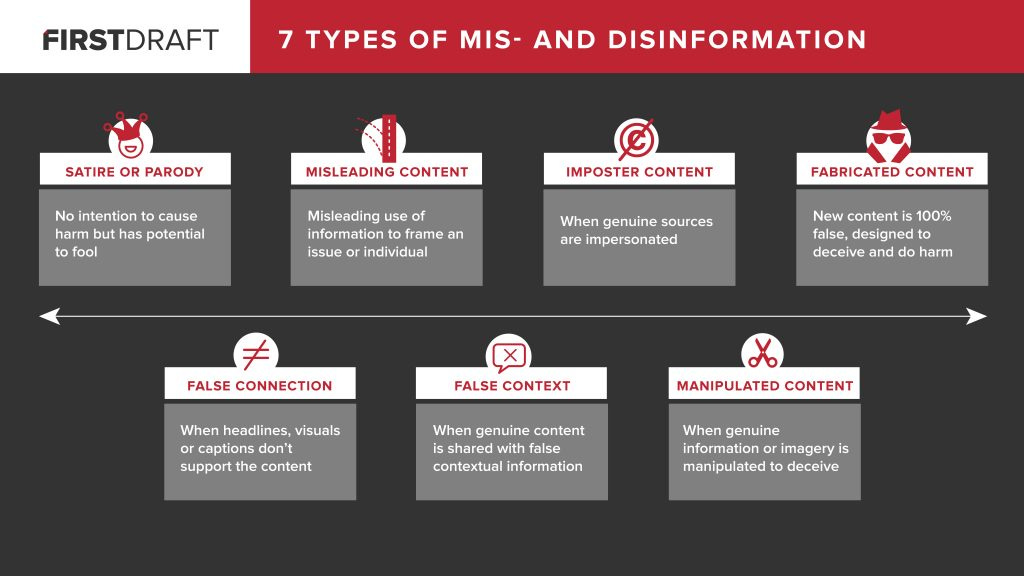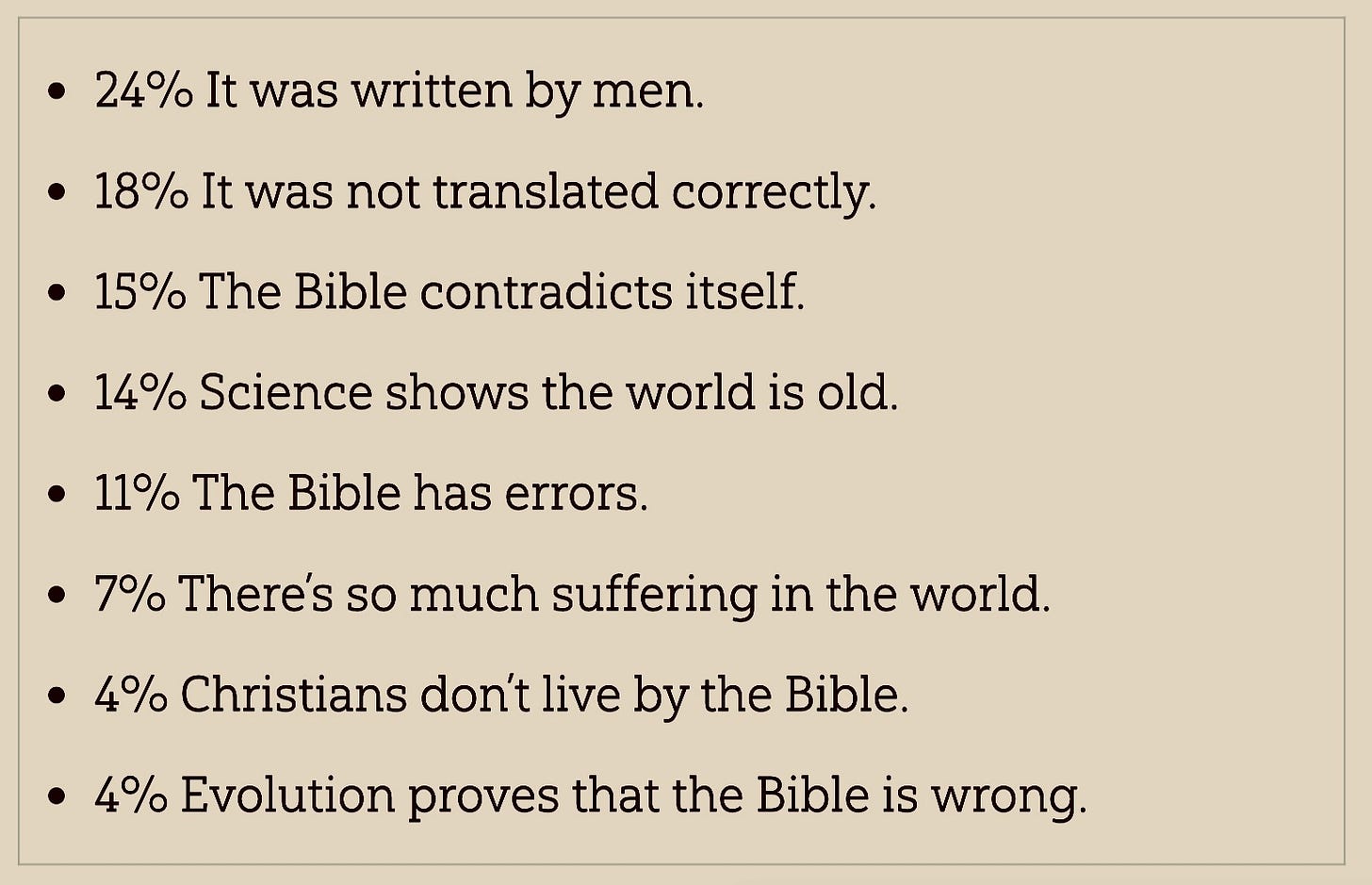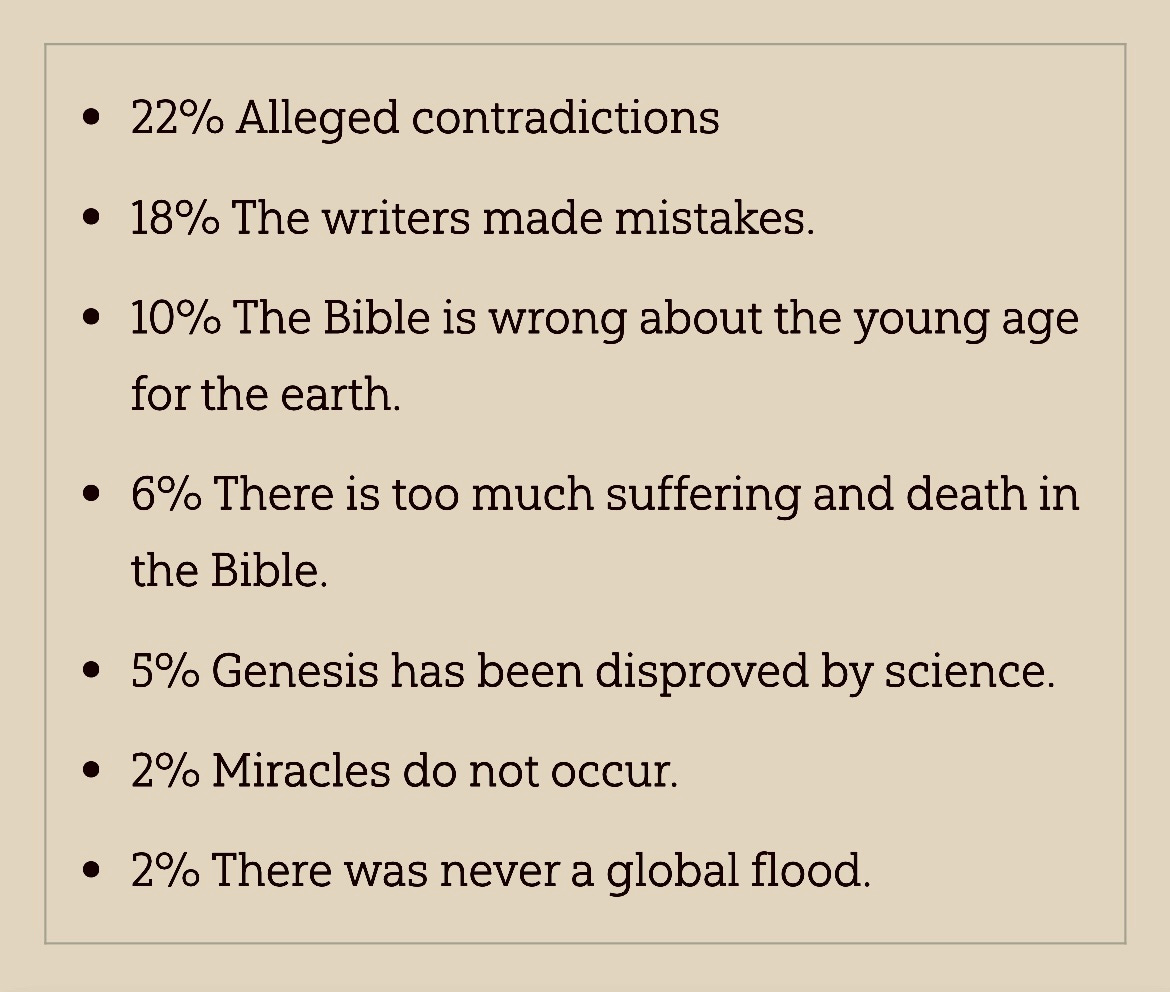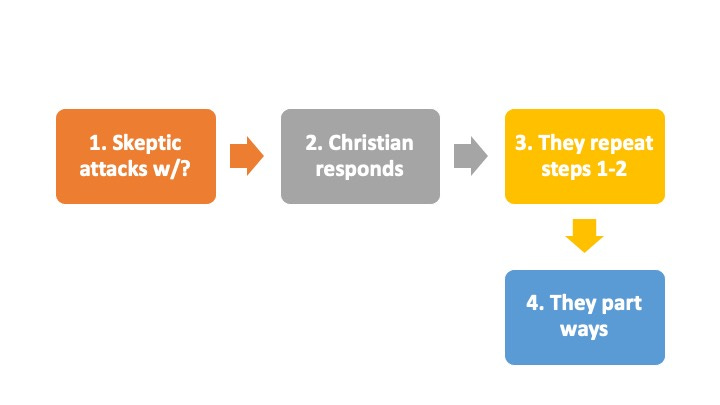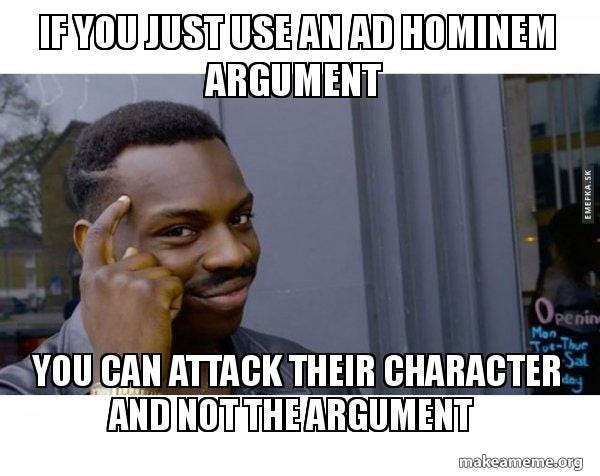IS THE BIBLE FAKE NEWS?
Less and less people believe the Bible is the Word of God. Here's a little news about the Bible as "fake news" ...
“FAKE NEWS”
It’s a buzzword. It’s entered the cultural lexicon and is here to stay. “Fake news” means a news story that is false. The University of Michigan Research Guide defines fake news as the news stories that are fabricated. A fake new story has no established facts, trustworthy sources, or verifiable quotes. Sometimes fake news stories are understood to be propaganda, intentionally designed to mislead the reader. Some fake news is to drive web traffic, “clickbait” written for profit alone. Claire Wardle of First Draft News created a helpful visual image “to help us think about the ecosystem of mis- and disinformation”.
This shows that it’s a complicated situation. Fake news can come about for a variety of reasons. It’s complex. It creates some blurry lines between the real and the fake. Fake news can be intentional but also accidental. And some stories are a mixture of fact and error.
Then, sometimes parties disagree about the basic facts. Then we get into the universe of “alternative facts”. The Wichita State University Library Guide defines an alternative fact “as an alternative interpretation’ of a fact to suit one's one political or ideological purposes. Whether such an alternate interpretation is, or is not, valid typically depends upon the fact in question, and how it has been interpreted (or misinterpreted).”
As hinted above, many of these debates center on political issues. The phrases “fake news” and alternative facts” have spilled over into other areas of life. These phrases can function as a sort weaponized language. They often end up being just a fancy way to accuse someone of lying. “Fake news” and “alternative facts” are apparently meme worthy. These phrases are now part of internet culture.

As we think on how terminology relating to the media from the Trump Era is now ubiqutous in non-political discourse, it’s interesting to observe how lingo can start in one place and end up in another. Like the phrase “GOAT”, for example. People love to debate who is the GOAT, Lebron or Jordan. Kids go around saying “goated” in 2023. Most people using the word don’t know who it came from: LL Cool J. Back in 2000, LL Cool J put out ab album titled GOAT, talking about how he is the “Greatest Of All Time”. Well, now everyone says it for everything. The greatest rapper. The greatest basketball player. The greatest teacher at a school.
So, here’s a question: is the Bible fake news, full of alternative facts, or is it the GOAT of all books? Or is it something else in between, and it’s more complex and complicated? We know how scripture itself answers, in 2 Timothy 3:16: “All Scripture is breathed out by God and profitable for teaching, for reproof, for correction, and for training in righteousness”.
IS THE BIBLE THE G.O.A.T.?
For centuries in Western Culture and before that, in Byzantine Christendom, and before that, in North African Christianity, the Bible has been considered the Greatest (Book) of All Time. That sentiment is no longer a common sentiment in the East of the West, and definitely not in the United States of America.
For example, according to The Beemer Report research cited in the book 2009 Already Gone by Ken Ham and Britt Beemer, nearly 2/3 of young people leave the church when they move away from home (p. 107). However, the doubts began much earlier: Per the Beemer Report, of those who no longer believe the Bible is true:
39.8% first had doubts in middle school
43.7% first had their doubts in high school
10.6% had their first doubts during college
The stats from young adults who have left the church are fascinating: 44% say they do not view the Bible as true or accurate (it’s certain the stats are higher now than they were 14 years ago). When asked why, here is how they responded.
Q: WHAT MADE YOU BEGIN TO DOUBT THE BIBLE?
This means 68% of the folks who left say they believe the Bible contradicts fact in some way. Lastly, let’s look at the errors that this same group of young people pointed out to questioners during the Beemer Report.
Q: WHAT ARE SOME OF THE ERRORS OF THE BIBLE?
Well, I’m not going to fix that with one little article. In this piece and the next, I do aim to give you some helpful tools on how to think about processing alleged Bible contradictions.
TALKING ABOUT TALKING ABOUT THE BIBLE
Historically, Christians have held that the Bible is the Word of God and therefore without error. Allegations of contradictions call that thesis into question. When someone asserts that the Bible has contradictions and therefore can’t be trusted, I’d encourage you to ask them for an example. That may kickstart a cycle like this …
Now, I’m always going to encourage believers to engage with skeptics. So if this is it how it goes, then so be it. However, what is this pattern can be altered? Because false ideas “are enemies of truth, and these enemies need to be attacked so the person deceived by them can realize their errors and see the truth”. David Wright and Bodie Hodge correctly write that “atheists, agnostics, humanists, and so on are not the enemy – for they are made in the image of God”. The point about our dialogue partners bearing the imago dei means that they have infinite value and worth. Our interlocutors bearing God’s image means we love them – and it shows!
AVOIDING THE AD HOMINEM
In the following suggestion, I am not recommending you to become disrespectful or to attack the person – only their bad ideas (commend their good ones). We must avoid the logical fallacy of the ad hominem (“to/concerning the person”). An “ad hom” is a direct attack on the person. Critics can use it against us: “only an idiot would believe the fairy tales of that book”. But Christians use it as well: “only an idiot would ask me a question like that”. Both are wrong. James 3:9-10 commands us against this, when it says that with our tongue “we curse people who are made in the likeness of God” and follows that with “these things ought not be so”.
We do not focus on the person in our argumentation. We can criticize bad ideas without delving into insult. Focus on the big issues in the debate, and not your fellow debater! Focus on what is essential to the argument. This is in the spirit of what the Apostle Paul wrote to the church at Corinth:
“For the weapons of our warfare are not of the flesh but have divine power to destroy strongholds. We destroy arguments and every lofty opinion raised against the knowledge of God, and take every thought captive to obey Christ”. - 2 Corinthians 10:4–5
To that end, I promote a different apologetic approach. I think of it as a beautiful blend of a flexible Frame-ian presuppositional approach and Koukl’s Tactics (see my review here), which itself is drawn from Francis Schaeffer’s work. My hope is that it results in something akin to the process illustrated in the graphic below
The essence of this idea is laid out in the chapter titled “A Good Defense is a Good Offense” in the book Demolishing Supposed Bible Contradictions, Volume 2:
“We need to get these unbelievers to realize they have been duped. This is where an attack on their false philosophies becomes important. We need to show them the weakness of their religion. Otherwise, they will continue to think they are standing on a solid foundation…”. - David Wright and Bodie Hodge
I realize real life usually doesn’t play out in a nice tidy pattern, but I promote this model as a mentality, a way of thinking, a strategy, a tactic, and an approach. With that as preface, let’s go through a few logical problems smuggled into common objections against Scripture. In next week’s post =-)
VOCAB MALONE
PHOENIX AZ USA


